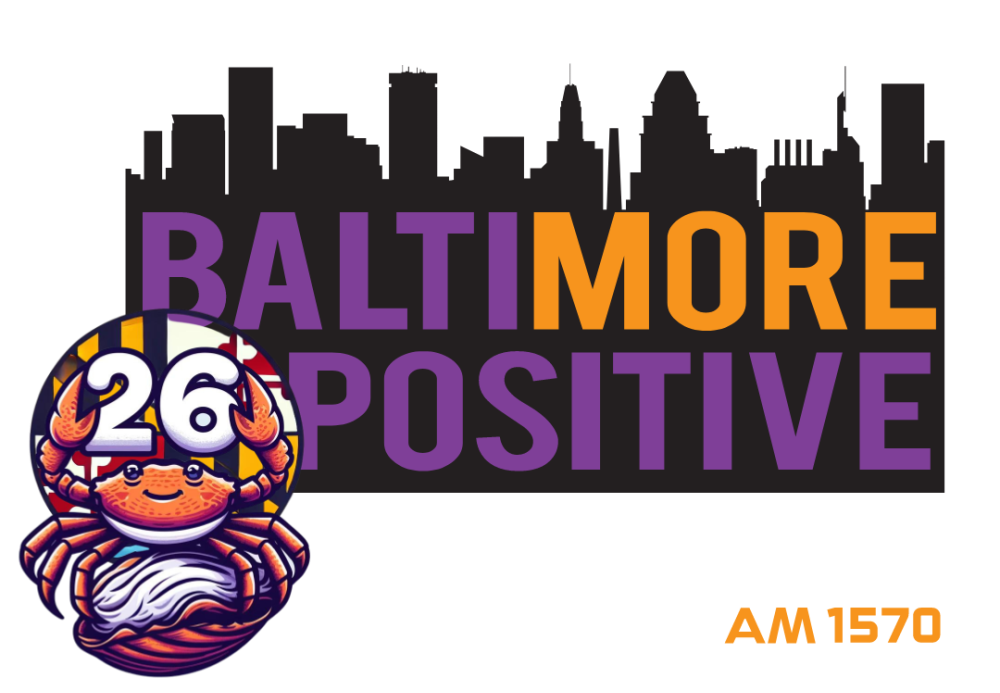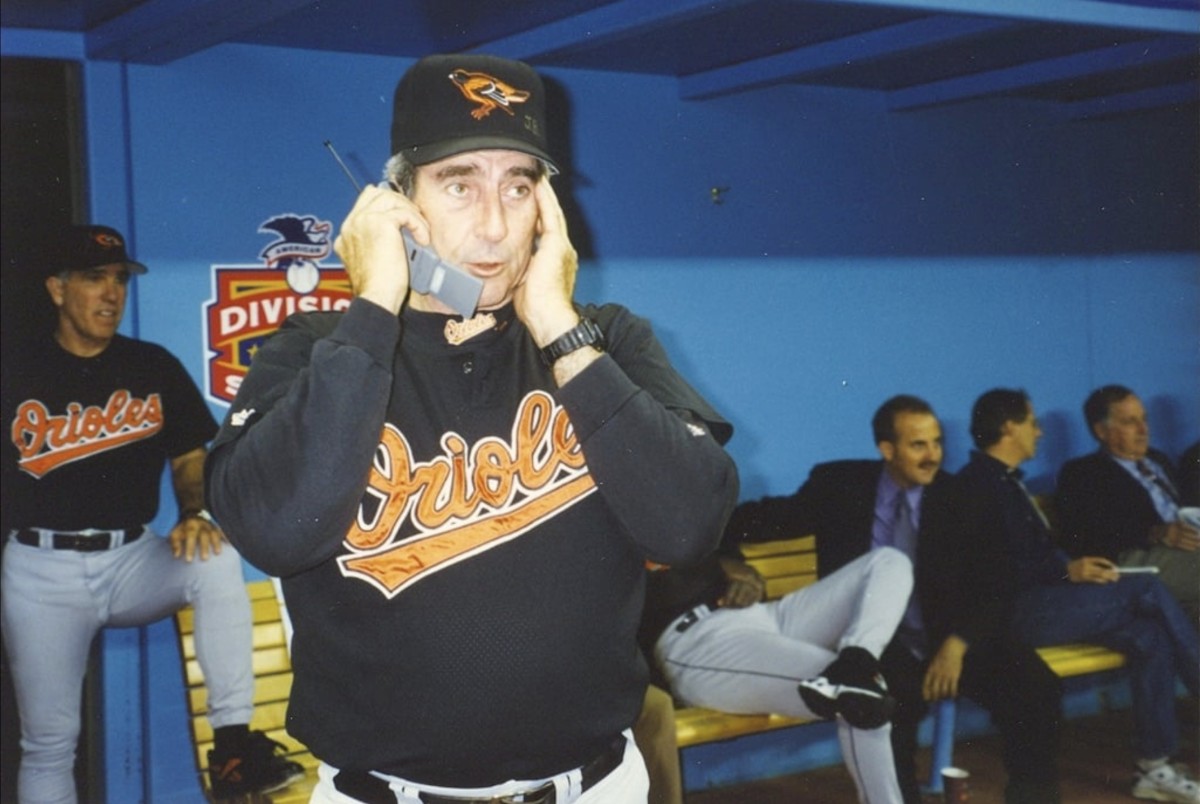7. Wren was not Zen: A Ray of darkness and a Frank malaise casts franchise adrift
“He called me and told me the pitching coach should be the manager’s prerogative. We tried his prerogative. It didn’t work. I don’t think he ever got over that.”
– Peter Angelos (re: Davey Johnson) in December 1997
WHEN THE DAVEY JOHNSON VS. Peter Angelos divorce letters finally hit The Washington Post – after two weeks of “he said, he said” – the newspaper literally just published the two faxes next to each other and let the fans and sportswriters read between the lines – the children, in this case the fans, were left behind in the nasty public divorce.
Angelos and Johnson simply let the peanut gallery and sportswriters pick a side after the split. And, now, just four years after buying the Orioles and seeking his fourth manager, Angelos was beginning to lose his initial honeymoon popularity and Johnson would be become a martyr to the team’s fan base for years to come.
Davey Johnson had his own demons entering the relationship and had a well-established, anti-establishment, competitive arrogance that he brought into every room. But, most folks around the 1986 New York Mets’ magical World Series run would tell you that the manager whose nickname was “Dumb Dumb” was actually always the smartest guy in the room. And Peter G. Angelos was developing a well-earned reputation as a supreme meddler, an intimidating life force and a bad guy to work for in Major League Baseball. He was making the antics of George Steinbrenner circa 1978 look like a sick, reprised role in Baltimore.
In the spring of 1998, with Johnson still unemployed after walking away from a $750,000 job and the third year of his Orioles deal, Sports Illustrated profiled the unemployed “Manager of The Year” and his public brawl with Angelos:
“The insolent son of a bitch” is how Angelos has referred to Johnson.
Johnson recalls a conversation in which Angelos told him, “I’m a fighter.” Johnson says he responded, “I’m a fighter, too. I fought my way through school. I’m used to fighting. I’m stubborn just like the next guy.” Angelos says the conversation never took place. Besides, he adds, “He is what he is. I am an individual who speaks straight. I don’t come at you obliquely. I come at you straight on. There are two totally different people here.” Only in such an absurdly off-kilter relationship could an owner who frequently levels off-the-record digs at his team characterize as evasive a manager known to be notoriously blunt.
Angelos fired Johnson’s handpicked pitching coach, Pat Dobson, and hired Ray Miller. “He called me and told me the pitching coach should be the manager’s prerogative,” Angelos says. “We tried his prerogative. It didn’t work. I don’t think he ever got over that.”
The downward spiral of the relationship accelerated—beyond resurrection, as it turned out—when Johnson fined second baseman Roberto Alomar $10,500 for missing a midseason exhibition game last year and directed the money to an educational charity for which Johnson’s wife, Susan, worked. Angelos found out where the money was going only after Alomar had filed a grievance with the players’ association. Johnson, who notified general manager Pat Gillick of the fine, later admitted it was a mistake not to have informed Angelos, too, though he feels this should not have been “a hanging offense.”
Angelos asked Donald Fehr, executive director of the players’ association, to keep the matter quiet until after the season. But he never confronted Johnson about it. Why not? “That’s a fair question,” Angelos says. “I spoke to the G.M. I could have called him, and he could have called me. I didn’t, and he didn’t. Maybe I should have.”
“I don’t want to come back knowing I’m not wanted,” Johnson told his attorney, Skip Dalton. “Let’s give him a choice: Extend me or buy me out.”
They faxed that request on Oct. 27 to Angelos, who concedes Johnson “probably” was finished as manager as soon as it came across his desk. “I thought he had lost his mind,” Angelos says.
Three days later, in a 90-minute phone conversation, Johnson told Angelos, “Look, I want to make you happy. What do you want me to do?”Angelos said he would get back to him. He never did. “Probably I was going to call him,” Angelos says, indicating he was busy. “I practice law every day.” Six days of silence left Johnson feeling more anxious than Damocles. Johnson thought, “He’s going to fire me. But he’s going to wait and wait and wait and then fire me.”
Davey was too busy polishing and faxing a letter to Angelos, saying essentially, “If you don’t want me, I’ll quit.” Johnson’s fax requested that Angelos respond by 3 p.m. because Johnson would be leaving for a fishing trip in the Florida Keys. At precisely 3 p.m., Johnson’s fax machine spat out the predictable reply: Resignation gladly accepted.
For Angelos, who was coldly unemotional and less than impressed with the managerial expertise and on-field success but mostly obsessed about the work habits of Johnson, it became a defining moment and a tipping point for the franchise’s direction for the next decade and beyond.
Overruling Pat Gillick? Perhaps some fans saw this as “no problem, he owns the team.”
Disagreeing with Davey Johnson? The jury was out on it but at this point, but despite churning through three managers in four seasons, Angelos’ ownership had delivered back-to-back Baltimore Orioles playoff seasons for the first time since 1974. So, while the fans were perplexed and somewhat divided on whether chasing Johnson out of town was such a good idea, it was hard to argue with the results on the field if you were measuring the new regime in the Fall of 1997.
But the media feud and manipulation – and at this point Angelos had essentially called for the firing of Ken Rosenthal and other writers at The Sun, fired John Lowenstein and Jon Miller and chased off Mel Proctor from Home Team Sports and WBAL Radio – didn’t at all shake the local media from reporting the basic facts. For the most part, the drama seemed to create itself with the sheer volume of turmoil and the continuing dissatisfaction with well-respected, competent, legacy people involved with the franchise that the fan base identified with over the years.
The Orioles’ fans trusted and truly liked these people.
The general discontent throughout the organization foreshadowed a free fall for the franchise that shook the very foundation of
































